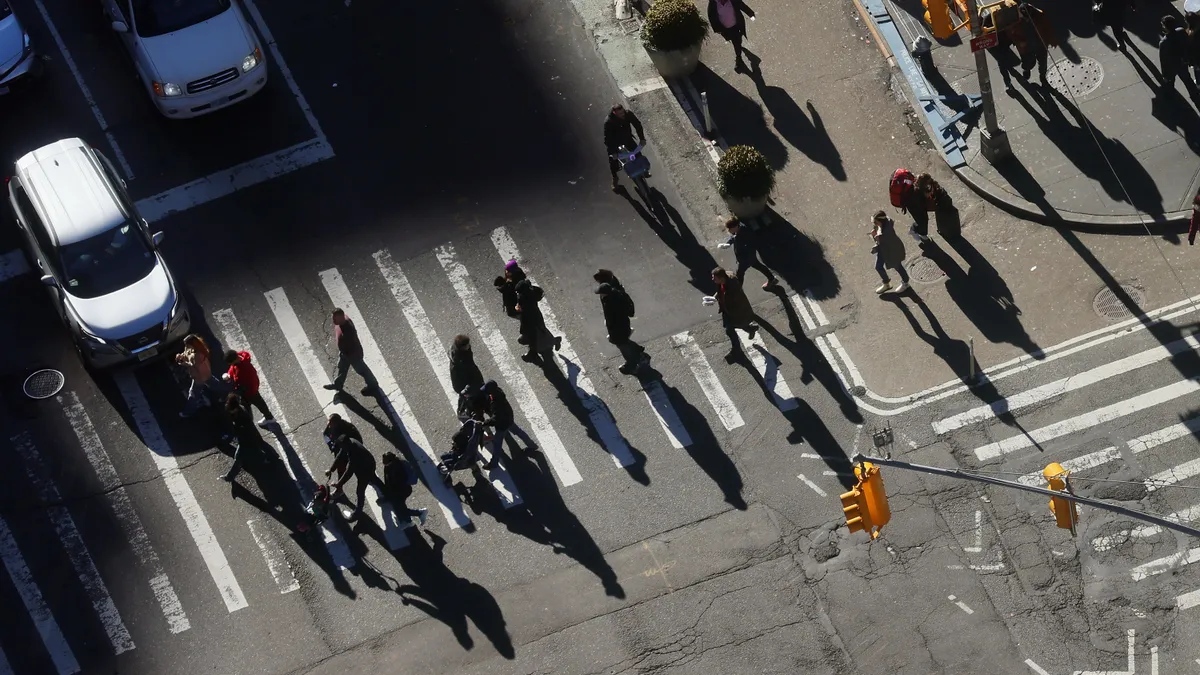"Clopening" is a common catchphrase in the retail and hospitality sectors – and experts are concerned.
Simply, 'clopening' is if you close a business location at night and then return first thing in the morning to reopen the same business. But employees who are required to clopen as part of their job are losing sleep, according to John Orr, senior vice president of retail at Ceridian, the global human capital management company.
"As businesses try to better serve customers by staying open late or even 24 hours, a demand in employee flexibility accompanies the effort," Orr says.
But while clopening may be beneficial to businesses – managers only need to rely on a small staff, which reduces costs – it brings with it dangerous mental and physical health side effects.
The side effects of 'clopening'
The most obvious repercussion for employees is lack of sleep, which is proven to compromise employee performance. Ceridian recently surveyed nearly 700 HR leaders across North America, and more than 30% have witnessed or heard about an employee falling asleep on the job.
Additionally, more than one-third of respondents (35%) found that sleep deficiency had negatively impacted productivity, and the late night/early morning drive home is even more terrifying when under a sleep induced spell.
Orr says some regions and cities are beginning to realize the toll clopening is taking on its employees and are creating legislation to better aid employees, such as the San Francisco Retail Worker Bill of Rights.
While data around clopening's downsides is primarily anecdotal, and there have been no studies on the prevalence of clopenings nationwide, tightly scheduling shifts is more common for a number of reasons. For example, many fast-food restaurants and other service businesses have high employee turnover and may be left with only a few trusted employees who have the authority and experience to close at night and open in the morning.
Several high-profile employers, sometimes under public pressure, have been changing scheduling practices. Starbucks, for example, announced in 2014 that it would revise scheduling procedures —eliminating the practice of "clopening" (though it appears the jury is still out on that issue). While there are certainly numerous examples of clopening practices, there are also examples of retailers voluntarily changing their practices, Orr says.
The majority of retailers, he adds, have gone through evaluation processes to select scheduling solutions that better meet desired needs of both the employer and the employees, including predictability. Similar to call-in practices of the past, most retailers have dropped these practices completely.
The nature of hospitality (e.g., late restaurant/bar hours) and 24-hour convenience stores make these environments prone to the clopening practice. However, retailers that call in floor staff for restocking or resets can also easily slide into this back-to-back scheduling compromise. Orr says sectors in retail with the highest turnover are more pressured to do what it takes to ensure coverage and therefore tend to require clopening.
Because clopening negatively impacts sleep health, some of the short- and long-term mental and physical effects include: impaired judgment and slowed reaction times; errors and accidents; interpersonal conflict; shifts in mood; obesity; mental illness, depression, and chronic health concerns.
"Retail employees — particularly those in customer-facing roles — can't provide a positive customer experience in a diminished, sleep-impaired state," Orr says. "Worse, employees suffering from the sleep-robbing effects of clopening could potentially detract from the customer experience."
What's being done
Clopening and erratic scheduling can also demoralize staff and damage a retailer's reputation, causing a nasty chain reaction: stress levels increase, engagement plummets, retention decreases and recruiting suffers.
Right now, California, Connecticut, Minnesota, Massachusetts, New Jersey, New York and others are considering or have adopted legislation limiting employer scheduling flexibility.
Beyond these regulatory approaches, state and local municipalities are starting to recognize sleep as a critical component of overall well-being and incorporating sleep health education into their overall wellness programs. The longer it takes retailers to remedy these scheduling issues, the more likely it is that the government will step in with legislation, Orr says.
While there are some federal regulations/laws pending on this, it is, much like minimum wage, a dead issue for the U.S. Congress, especially in an election year.
According to Orr, retailers may be shrinking the intervals between shifts and relying on smaller, leaner staffs in an attempt to shave costs. They don't necessarily realize that this is costing them in the form of poor customer service and less productive employees.
"Retailers need to connect the dots among clopening, sleep health and employee well-being," he says. Retailers rely and invest heavily in customer-facing staff because they know it's critical to the customer experience and the bottom line. So it's fairly obvious that retailers who implement practices, policies and technologies that support employee well-being and work-life balance will do a better job recruiting and retaining the best talent.
Unfortunately, Orr says, business leaders often do not pay attention to issues unless someone puts a dollar value on them. For example, PwC recently found that 34% performance improvement is achieved through improved employee engagement.
Sometimes, it's not easy to spot poor scheduling. Often, organizational policy and schedule irregularity of many part-time positions allow some employees to choose their own shifts or switch shifts with other associates without any consideration of sleep health. Retailers who want to support employee well-being should be aware of these impacts and develop policies to help prevent sleepy associates.
Current workforce management tech-based solutions can ensure that schedules are fair, and can also alert managers when schedules are problematic so that they can proactively participate in improving work-life balance.
"We recommend retailers leverage scheduling software that has the ability to provide fairness, equity, and a healthy work-life balance," he says. "People can't function well without sleep, and it's possible to make that happen. The tools and strategies exist."




















